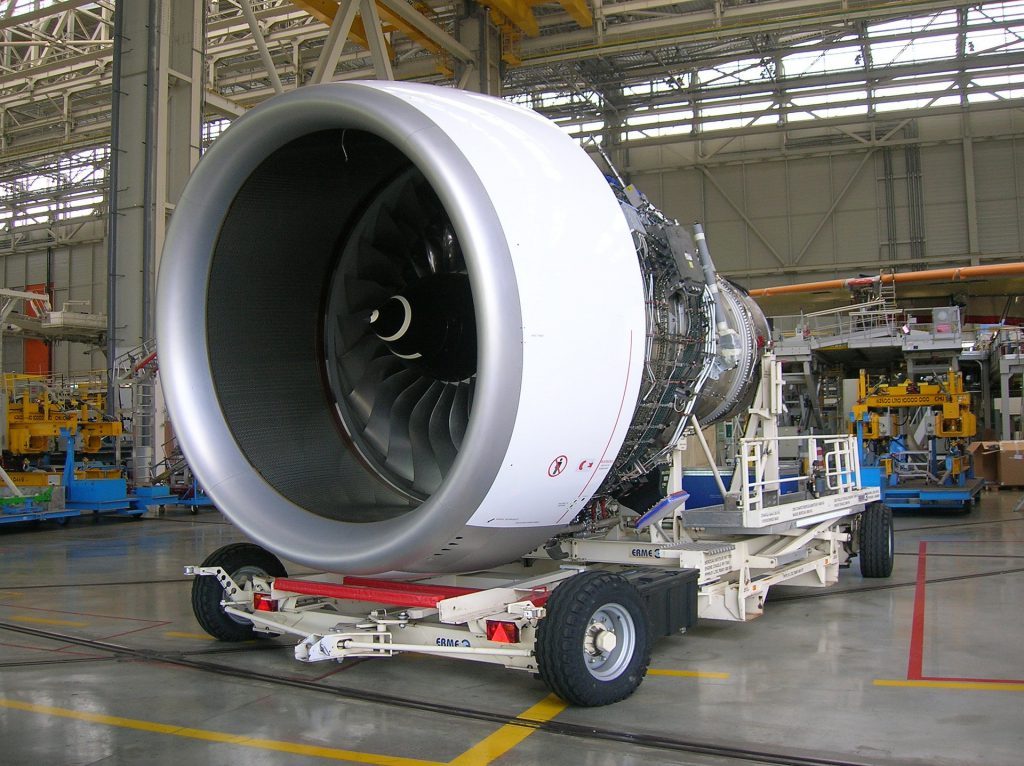Rolls-Royce Starts Hydrogen Tests On Turbine Engine
Rolls-Royce’s decision to test a hydrogen-powered turbine engine is part of the company’s commitment to reducing its carbon footprint and contributing to the fight against climate change. The aerospace industry is a significant contributor to global carbon emissions, and the use of hydrogen as a fuel source has the potential to significantly reduce the industry’s environmental impact.
Hydrogen is an attractive fuel source for several reasons. First and foremost, it is a clean fuel, as it produces only water vapor as a byproduct when combusted. This means that hydrogen-powered aircraft would not produce any carbon emissions, making them a much more sustainable option than traditional jet fuel-powered aircraft.
In addition to being a clean fuel, hydrogen is also an efficient energy source. It has a high energy content, which means that hydrogen-powered aircraft could have longer ranges and lower operating costs than traditional jet fuel-powered aircraft. This would make air travel more accessible and affordable for people around the world.
The testing of the hydrogen-powered turbine engine is just the beginning of Rolls-Royce’s journey towards sustainable aviation. The company is also exploring other technologies such as electric and hybrid-electric propulsion systems. These technologies have the potential to further reduce the environmental impact of air travel and make it even more sustainable in the future.
The aerospace industry is facing increasing pressure to reduce its environmental impact, and companies like Rolls-Royce are taking proactive steps to meet this challenge. The testing of a hydrogen-powered turbine engine is a significant step forward in the industry’s quest for sustainable power solutions, and it will be interesting to see how the technology develops in the coming years.
Overall, Rolls-Royce’s decision to test a hydrogen-powered turbine engine is a positive development for the aerospace industry and the fight against climate change. The use of hydrogen as a fuel source has the potential to significantly reduce emissions, improve sustainability, and make air travel more accessible and affordable for people around the world.
It is important to note that while hydrogen-powered aircraft have the potential to significantly reduce emissions and improve sustainability, there are still challenges to be addressed before hydrogen can be widely adopted as a fuel source for the aerospace industry. One of the main challenges is the infrastructure required to produce, store, and transport hydrogen in large quantities. Currently, hydrogen is mostly produced from natural gas, which is a fossil fuel and not a sustainable source. However, hydrogen can also be produced from renewable sources such as solar and wind power, through a process called electrolysis.
Another challenge is the storage and transportation of hydrogen. Hydrogen is a gas at room temperature and pressure and it needs to be stored at very low temperatures and high pressures in order to be transported and used as a fuel. This requires special tanks and infrastructure, which can be costly.
Despite these challenges, companies like Rolls-Royce are committed to finding solutions and making hydrogen-powered aircraft a reality. The company is investing in research and development to improve the efficiency and cost-effectiveness of hydrogen production, storage, and transportation.
In addition, governments and organizations around the world are also investing in hydrogen infrastructure and research to support the development of hydrogen as a fuel source. For example, the European Union has set a target to produce hydrogen from renewable sources by 2030, and the International Energy Agency has identified hydrogen as a key element in the transition to a sustainable energy future.
It’s worth mentioning that Rolls-Royce is not the only one in the aerospace industry looking into hydrogen as a fuel source. Other major players such as Boeing, Airbus and EasyJet also announced hydrogen projects. This shows a growing trend and interest in hydrogen as a fuel source for aviation.
In conclusion, while there are still challenges to be addressed before hydrogen can be widely adopted as a fuel source for the aerospace industry, companies like Rolls-Royce and governments around the world are committed to finding solutions and making hydrogen-powered aircraft a reality. The testing of a hydrogen-powered turbine engine by Rolls-Royce is a significant step forward in the industry’s quest for sustainable power solutions, and it will be exciting to see how the technology develops in the coming years.

